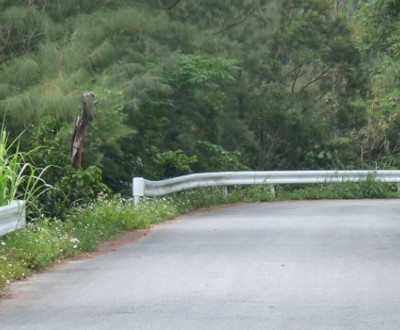The Okinawa diet: living older and healthier
The centenarians’ recipe in Japan
If Okinawa has its (well deserved) reputation of a tropical paradise, it is also famous for being home of the world's most numerous centenarians in good health. Some data:
- life expectancy for over-65s: 86 years old for women and 83,5 years old for men;
- 15% of "super-centenarians" (110 years old and more) of the planet for only 0,002% of worldwide population; 0,054% of the population is a century-old compared to the USA where 0,017% of the population lived pass 100 years old in 2010;
- 97% of these centenarians live without serious health problems;
- 5 times less illness among the most frequent and severe which touch the world population.
To demonstrate that the reasons were not genetic, a study related these figures with those of 120,000 Japanese native of Okinawa living in Brazil. The results are stunning: for these emigrants, 17 years of life expectancy less and 12 times less centenarians. Less impressive numbers (yet still alarming) are found among younger generations in Okinawa, influenced by the US military presence, tourism and junk food.
In order to understand the why and how of this success among Okinawa’s elderly people, a daily pattern can be described via 3 main axes followed by this population: diet, physical activity and way of life. Obviously, this model cannot be strictly imported in our lives, but it is possible to get inspired from it, as much as possible.
Diet in Okinawa
Food in Japan is traditionally more balanced than in Western countries. And Okinawa cuisine is known to be even better for health. Indeed, the eaten ingredients possess protective substances. Here are some of the components of their diet:
- a better absorption of calories due to a low meat consumption: 78% of their food come from vegetables. In addition, meat is usually eaten in a smaller size serving in contrary to Western areas where it is over-consumed at each meal. Focus in preference on poultry / white meat rather than red one.
- obviously a lot of fish, less rich than meat in iron, saturated fats and cholesterol, but high in omega-3 and magnesium.
- very few dairy products (including cheese which increases blood pressure and cardiovascular risks). Almost no milk and derived products, responsible for digestive disorders, replaced by yogurts, high in good lactic acids.
- strong presence of soy of all kinds, containing phyto-oestrogens with anti-oxidant, anti-cancer and anti-osteoporosis effects.
- lots of fresh water and tea with few alcohol.
- eating up to satiety without forcing nor stuffing yourself.
Physical exercise of Okinawa residents
Be noticed: do not confuse physical activity and sports. No need for 10 hours of intensive sport per week in order to have a regular physical activity and a healthy life. The advantages of physical exercises are famous:
- cardiac benefits: improvement of blood flow, vessel dilatation, better delivery of oxygen and nutrients;
- improvement of sleep and therefore slow-down of aging process (as body's tissues can better repair);
- feeling of well-being, of "good tiredness";
- reduced risk of diabetes and osteoporosis;
- and more…
Okinawa’s seniors usually had a job which required physical activity and they walk a lot. They also almost do not smoke at all.
Philosophy of life in Okinawa
The third axis of good health followed by Okinawa elderly people is not about food nor physical, but physiological. It is all about a way of life linked to nature and flows of energy.
Their manner to overcome life’s difficulties is done with patience, tolerance and resilience. In this philosophy of life, you try not to overreact in front of a threat or a problem, which might not be as serious as you think. Analysis must be done with reason and relativity (just like in some martial arts). Therefore, this means spending less energy on an everyday basis.
To calm down, there are many small techniques that everyone should get inspired from: slow breathing, focus on cardiac rhythm, meditation, stretching your body, contact with water and sun exposure…
Results are very positive on the organism: lower stress, less anxiety, decreasing of depression rates and better management of energy, therefore available for positive and useful actions.
It is also essential to feel surrounded. Several studies show how important for a person to weave social bonds (family, friends, communities…) with the goal of creating a strong support around you.

